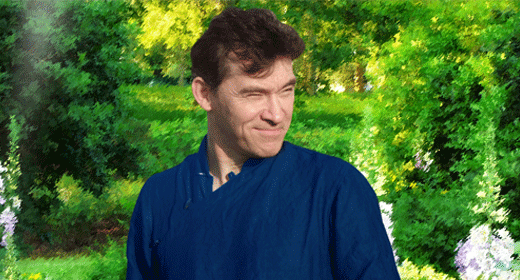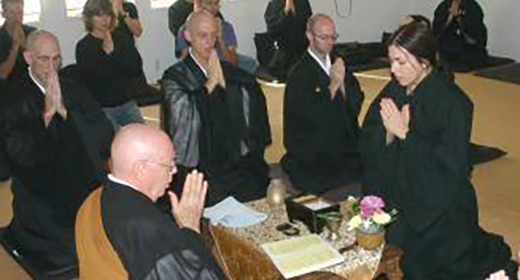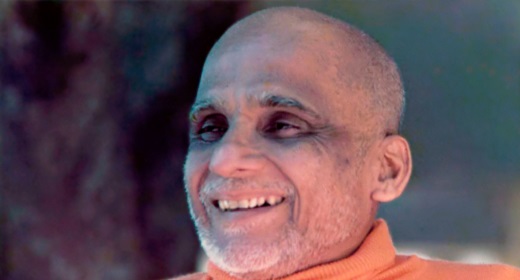by Steve Taylor PhD: One morning in August 2000, I was sitting in my flat in Singapore, meditating, enjoying a state of inner calm.

The Power of Acceptance How an Attitude of Acceptance Can Transform your Experience
But suddenly, for no apparent reason, a loud, high-pitched ringing noise started up in my ear. It was as if someone had pressed a button inside my head. Everyone gets ringing in their ears sometimes, of course, so at first I wasn’t so concerned. But this ringing didn’t go away. And it seemed to get worse – after a few days, it got louder, and developed an awful screeching overtone. I found it impossible to meditate, and difficult to sleep. In fact, I was disturbed by the noise almost all the time. It was so loud that I was always conscious of it, unless there was very loud background noise.
I gradually realised that the noise wasn’t going to leave me. I realised that I had tinnitus. Perhaps it was the result of playing loud music in rock bands for several years when I was younger, or perhaps it was related to an episode of bronchitis I’d had shortly before. The worst thing was that I could never escape the noise – it was always with me, 24 hours a day. I used to love silence, to just sit or lie down and listen to the stillness, so it was depressing to think that for me silence was gone forever. I went to see a specialist, who told me that I was partially deaf in my ear due to the tinnitus, and that there was no chance of a cure – it was something I’d just have to get used to.
I tried to mask the noise – the specialist gave me a ‘white noise’ generating device to put in my ear, and at night I went to sleep with the radio tuned between stations. But that wasn’t fair on my wife – the noise of the radio made it difficult for her to sleep. Eventually I said to myself, ‘This is ridiculous – the noise isn’t going to go away, so I’ll have to try to accept it.’
One night I decided to face up to the noise, and not switch the radio on. And to my surprise, it wasn’t so difficult. Imagine there’s a person who you think of as an enemy and are afraid to face – but once you do face them, you find that they’re not so objectionable after all. I managed to get to sleep quite easily, and the next night it was even easier. I found that I was less affected by the noise during the day as well. I even found I could meditate without background noise.
I still hear the tinnitus now – it’s screeching in my ear as I write this, but it doesn’t affect me. It’s just there, in a neutral, non-bothering way.
The Alchemy of Acceptance
To me, this experience illustrates the amazing power of acceptance. An attitude of acceptance can neutralize unpleasant and irritating experiences – and even sometimes transform them into pleasant ones. I realised that the tinnitus was affecting me so negatively because I wasresisting it. As soon as I stopped resisting, it stopped affecting me.
I discovered a similar phenomenon when I wrote my book Out of the Darkness, which examines how difficult and traumatic events can sometimes have a positive transformational effect. Some of the people featured in the book underwent transformation after being diagnosed with cancer, bereavement, losing everything through alcoholism, becoming disabled, suffering from severe depression, and so on. They found a new spiritual strength inside themselves, felt a new sense of connection to the world and to other people, a new sense of purpose and meaning.
I was curious about what distinguished these people from others – by far the majority – who don’t experience the transformational effects of turmoil and trauma. I found that the essential factor was acceptance. All of the people who underwent ‘transformation through suffering’ – as I called it – experienced a ‘moment of acceptance,’ when they gave up resisting their predicament. They ‘let go’, or surrendered to their state. In some cases, they felt they had no choice but to accept their state because they had nothing left to cling to or to hope for. This didn’t mean that they stopped trying to get better, or to rebuild their lives. It just meant that they faced up to the full reality of their state, and stopped trying to resist it in a rigid, adversarial way.
Once I became aware of the power of acceptance – following my experience with tinnitus – I began to use it in other situations. I used it once when I was ill, lying in bed feeling miserable. I made a mental effort to shift my attitude from resistance to acceptance. I replaced thoughts like ‘I can’t afford to be ill, I’ve got deadlines to meet!’ with more positive thoughts such as ‘There’s nothing wrong with this situation – I’m lying in a warm and comfortable bed, relaxing. Everything that needs to be done can wait.’ Immediately my mental agitation and frustration began to fade away.
Everyday Acceptance
There are many experiences and activities in our lives which aren’t innately negative, and which could easily be neutralized – or even made pleasant – by the alchemical power of acceptance. Think of household chores, for example. Are they innately boring activities, or is your antipathy towards them due to a ‘resistant’ mental attitude? Think about how you feel when you’re stuck in a long queue of cars at the traffic lights. What is the source of your frustration? You’re just sitting in the front seat of your car; you could be listening to some pleasant music or staring curiously at the other people in their cars, or at the streets, buildings or the sky. It’s only your mental resistance to the situation – your impatience and eagerness to reach your destination – which makes it unpleasant. Our lives are full of neutral situations which are made pleasant or unpleasant by our mental attitude and our thoughts.
At the same time, it’s important to be aware that there are some things we should never accept – abuse, oppression, situations or role to which we’re innately unsuited, and so forth. It’s essential to differentiate the situations which we should try to accept from those which we should try to change. For example, if you’re being bullied by your manager at work, it would be wrong to accept the situation – you should try to change it, by taking action against the manager, or by getting a new job. If you’re living in area of high crime and violence, acceptance may help to some degree, but it’s probably still advisable to move out, if you can. There are some occasions when it’s appropriate to change our mental attitude, and other occasions when it’s more appropriate to change our life-situation.
This has never been put better than in the ‘Serenity Prayer’, created by the theologian Reinhold Niebuhr, and later adopted by Alcoholics’ Anonymous: ‘God, grant me the serenity to accept the things I cannot change, the courage to change the things I can, and wisdom to know the difference.’
p.s. I’ve formulated a process of ‘turning resistance to acceptance’ based on my experiences, which I’ll share in my next blog.








































